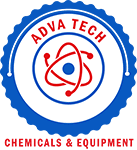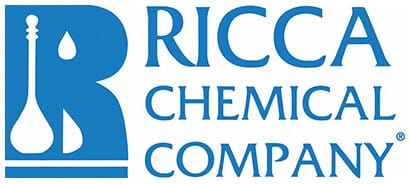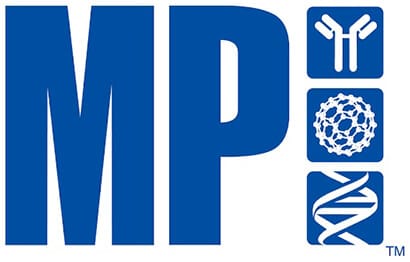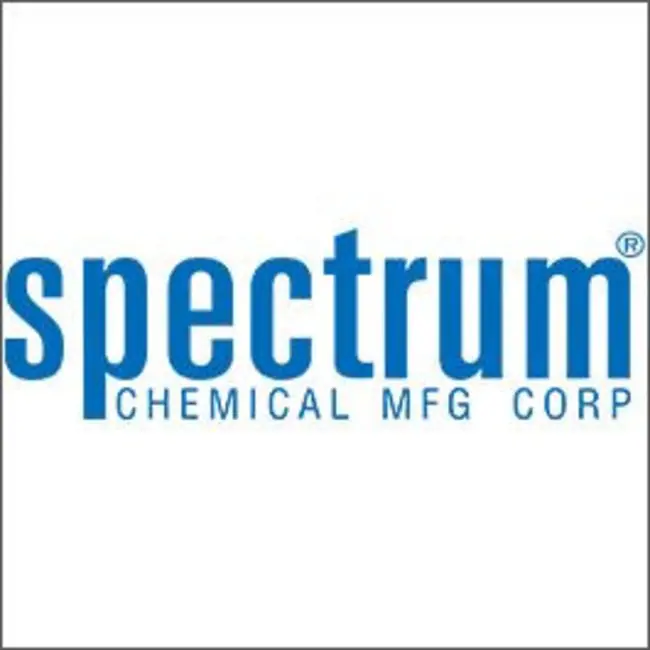1mg
Showing 3601–3650 of 5094 results
-

Glycidyl Palmitate-d5
$281.18 Add to cart View Product DetailsMolecular Formula : C19 D5 H31 O3
-

Glycidyl Palmitoleate-d5 (Technical Grade)
$160.43 Add to cart View Product DetailsMolecular Formula : C19 D5 H29 O3
-
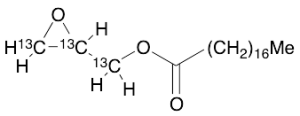
Glycidyl Stearate-13C3
$166.46 Add to cart View Product DetailsMolecular Formula : C1813C3H40O3
-
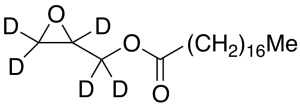
Glycidyl Stearate-d5
$263.93 Add to cart View Product DetailsMolecular Formula : C21 D5 H35 O3
-
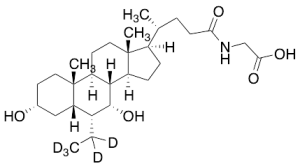
Glycine 6-Ethylchenodeoxycholate-d5
$220.80 Add to cart View Product DetailsMolecular Formula : C28H42D5NO5
-

Glycine-13C2,15N Methyl Ester Hydrochloride
$67.28 Add to cart View Product DetailsMolecular Formula : C¹³C2H7¹⁵NO2.HCl
-
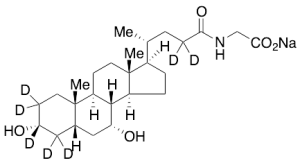
Glycochenodeoxycholic Acid-d7 Sodium Salt (Major)
$215.63 Add to cart View Product DetailsMolecular Formula : C26H35D7NNaO5
-
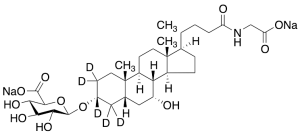
Glycochenodeoxycholic-d5 Acid-3-O-Beta-glucuronide Disodium Salt
$895.28 Add to cart View Product DetailsMolecular Formula : C32H44D5NNa2O11
-
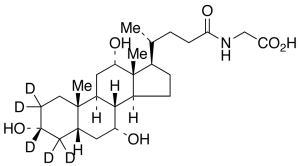
Glycocholic Acid-d5
$243.23 Add to cart View Product DetailsMolecular Formula : C26H38D5NO6
-

Glycodeoxycholic Acid (2,2,4,4-d4)
$218.21 Add to cart View Product DetailsMolecular Formula : C26 D4 H39 N O5
-

Glycodeoxycholic Acid-3-O-Beta-glucuronide Disodium Salt
$235.46 Add to cart View Product DetailsMolecular Formula : C32H49NNa2O11
-

Glycodeoxycholic Acid-D5
$218.21 Add to cart View Product DetailsMolecular Formula : C26H38D5NO5
-
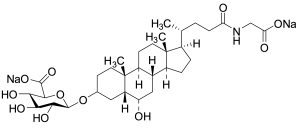
Glycohyodeoxycholic Acid 3-O-Beta-Glucuronide Disodium Salt
$232.01 Add to cart View Product DetailsMolecular Formula : C32H49NNa2O11
-
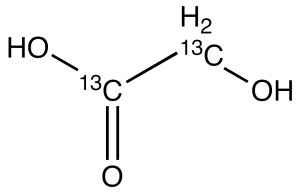
Glycolic Acid-13C2
$194.93 Add to cart View Product DetailsMolecular Formula : 13C2H4O3
-

Glycoursodeoxycholic Acid-d4 (Major)
$146.63 Add to cart View Product DetailsMolecular Formula : C26 D4 H39 N O5
-
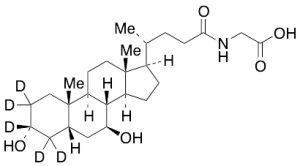
Glycoursodeoxycholic Acid-d5
$255.30 Add to cart View Product DetailsMolecular Formula : C26H38D5NO5
-

Glycyl-L-Glutamine
$160.43 Add to cart View Product DetailsMolecular Formula : C7 H13 N3 O4 . H2 O
-
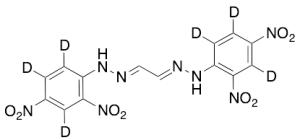
Glyoxal-bis-2,4-DNPH-d6
$242.36 Add to cart View Product DetailsMolecular Formula : C14 D6 H4 N8 O8
-
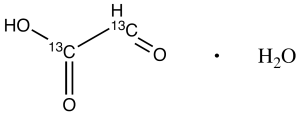
Glyoxylic Acid-13C2 Monohydrate
$257.89 Add to cart View Product DetailsMolecular Formula : 13C2H4O4
-

Glyphosate-13C
$119.03 Add to cart View Product DetailsMolecular Formula : C213CH8NO5P
-
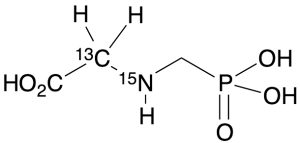
Glyphosate-13C,15N
$215.63 Add to cart View Product DetailsMolecular Formula : 13C C2 H8 15N O5 P
-
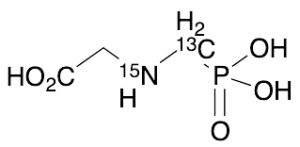
Glyphosate-13C,15N
$267.38 Add to cart View Product DetailsMolecular Formula : 13C C2 H8 15N O5 P
-

Glyphosate-13C2,15N
$232.88 Add to cart View Product DetailsMolecular Formula : 13C2 C H8 15N O5 P
-
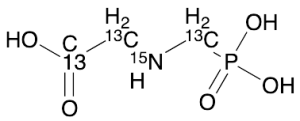
Glyphosate-13C3,15N
$211.31 Add to cart View Product DetailsMolecular Formula : 13C3 H8 15N O5 P
-
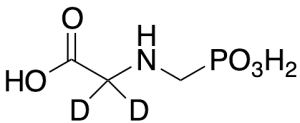
Glyphosate-C2-d2
$214.76 Add to cart View Product DetailsMolecular Formula : C3H6D2NO5P
-
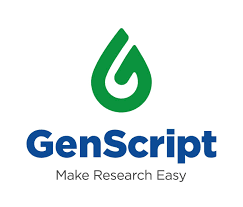
GM-CSF, Human
$1,923.38 Add to cart View Product DetailsGranulocyte Macrophage-Colony Stimulating Factor (GM-CSF) was initially characterized as a growth factor that can support the in vitro colony formation of granulocyte-macrophage progenitors. Granulocyte Macrophage-Colony Stimulating Factor (GM-CSF) is produced by a number of different cell types, including activated T cells, B cells, macrophages, mast cells, endothelial cells, and fibroblasts, in response to cytokine of immune and inflammatory stimuli. Besides granulocyte-macrophage progenitors, Granulocyte Macrophage-Colony Stimulating Factor (GM-CSF) is a growth factor for erythroid, megakaryocyte, and eosinophil progenitors. On mature hematopoietic, monocytes/macrophages and eosinophils. Human Granulocyte Macrophage-Colony Stimulating Factor (GM-CSF) can induce human endothelial cells to migrate and proliferate. Additionally, Granulocyte Macrophage-Colony Stimulating Factor (GM-CSF) can stimulate the proliferation of a number of tumor cell lines, including osteogenic sarcoma, carcinoma, and adenocarcinoma cell lines.
-
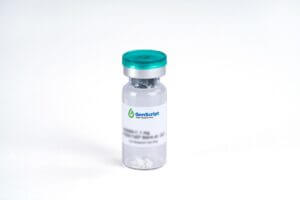
GM-CSF, Human
$2,018.25 Add to cart View Product DetailsGranulocyte Macrophage-Colony Stimulating Factor (GM-CSF) was initially characterized as a growth factor that can support the in vitro colony formation of granulocyte-macrophage progenitors. Granulocyte Macrophage-Colony Stimulating Factor (GM-CSF) is produced by a number of different cell types, including activated T cells, B cells, macrophages, mast cells, endothelial cells, and fibroblasts, in response to cytokine of immune and inflammatory stimuli. Besides granulocyte-macrophage progenitors, Granulocyte Macrophage-Colony Stimulating Factor (GM-CSF) is a growth factor for erythroid, megakaryocyte, and eosinophil progenitors. On mature hematopoietic, monocytes/macrophages and eosinophils. Human Granulocyte Macrophage-Colony Stimulating Factor (GM-CSF) can induce human endothelial cells to migrate and proliferate. Additionally, Granulocyte Macrophage-Colony Stimulating Factor (GM-CSF) can stimulate the proliferation of a number of tumor cell lines, including osteogenic sarcoma, carcinoma, and adenocarcinoma cell lines.
-

GM-CSF, Human (P. pastoris-expressed)
$2,018.25 Add to cart View Product DetailsGranulocyte Macrophage-Colony Stimulating Factor (GM-CSF) was initially characterized as a growth factor that can support the in vitro colony formation of granulocyte-macrophage progenitors. Granulocyte Macrophage-Colony Stimulating Factor (GM-CSF) is produced by a number of different cell types, including activated T cells, B cells, macrophages, mast cells, endothelial cells, and fibroblasts, in response to cytokine of immune and inflammatory stimuli. Besides granulocyte-macrophage progenitors, Granulocyte Macrophage-Colony Stimulating Factor (GM-CSF) is a growth factor for erythroid, megakaryocyte, and eosinophil progenitors. On mature hematopoietic, monocytes/macrophages and eosinophils. Human Granulocyte Macrophage-Colony Stimulating Factor (GM-CSF) can induce human endothelial cells to migrate and proliferate. Additionally, Granulocyte Macrophage-Colony Stimulating Factor (GM-CSF) can stimulate the proliferation of a number of tumor cell lines, including osteogenic sarcoma, carcinoma, and adenocarcinoma cell lines.
-
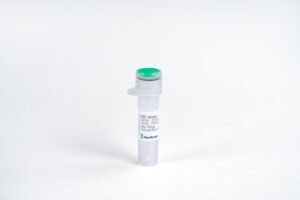
GM-CSF, Human(CHO-expressed)
$2,018.25 Add to cart View Product DetailsGranulocyte Macrophage-Colony Stimulating Factor (GM-CSF) was initially characterized as a growth factor that can support the in vitro colony formation of granulocyte-macrophage progenitors. Granulocyte Macrophage-Colony Stimulating Factor (GM-CSF) is produced by a number of different cell types, including activated T cells, B cells, macrophages, mast cells, endothelial cells, and fibroblasts, in response to cytokine of immune and inflammatory stimuli. Besides granulocyte-macrophage progenitors, Granulocyte Macrophage-Colony Stimulating Factor (GM-CSF) is a growth factor for erythroid, megakaryocyte, and eosinophil progenitors. On mature hematopoietic, monocytes/macrophages and eosinophils. Human Granulocyte Macrophage-Colony Stimulating Factor (GM-CSF) can induce human endothelial cells to migrate and proliferate. Additionally, Granulocyte Macrophage-Colony Stimulating Factor (GM-CSF) can stimulate the proliferation of a number of tumor cell lines, including osteogenic sarcoma, carcinoma, and adenocarcinoma cell lines.
-

GM-CSF, Mouse
$2,018.25 Add to cart View Product DetailsGranulocyte Macrophage-Colony Stimulating Factor (GM-CSF) was initially characterized as a growth factor that can support the in vitro colony formation of granulocyte-macrophage progenitors. Granulocyte Macrophage-Colony Stimulating Factor (GM-CSF) is produced by a number of different cell types, including activated T cells, B cells, macrophages, mast cells, endothelial cells, and fibroblasts, in response to cytokine of immune and inflammatory stimuli. Besides granulocyte-macrophage progenitors, Granulocyte Macrophage-Colony Stimulating Factor (GM-CSF) is a growth factor for erythroid, megakaryocyte, and eosinophil progenitors. On mature hematopoietic, monocytes/macrophages and eosinophils. Additionally, Granulocyte Macrophage-Colony Stimulating Factor (GM-CSF) can stimulate the proliferation of a number of tumor cell lines, including osteogenic sarcoma, carcinoma, and adenocarcinoma cell lines.
-

GM-CSF, Mouse
$1,470.56 Add to cart View Product DetailsGranulocyte Macrophage-Colony Stimulating Factor (GM-CSF) was initially characterized as a growth factor that can support the in vitro colony formation of granulocyte-macrophage progenitors. Granulocyte Macrophage-Colony Stimulating Factor (GM-CSF) is produced by a number of different cell types, including activated T cells, B cells, macrophages, mast cells, endothelial cells, and fibroblasts, in response to cytokine of immune and inflammatory stimuli. Besides granulocyte-macrophage progenitors, Granulocyte Macrophage-Colony Stimulating Factor (GM-CSF) is a growth factor for erythroid, megakaryocyte, and eosinophil progenitors. On mature hematopoietic, monocytes/macrophages and eosinophils. Additionally, Granulocyte Macrophage-Colony Stimulating Factor (GM-CSF) can stimulate the proliferation of a number of tumor cell lines, including osteogenic sarcoma, carcinoma, and adenocarcinoma cell lines.
-

GM-CSF, Rat
$1,470.56 Add to cart View Product DetailsGranulocyte Macrophage-Colony Stimulating Factor (GM-CSF) was initially characterized as a growth factor that can support the in vitro colony formation of granulocyte-macrophage progenitors. Granulocyte Macrophage-Colony Stimulating Factor (GM-CSF) is produced by a number of different cell types, including activated T cells, B cells, macrophages, mast cells, endothelial cells, and fibroblasts, in response to cytokine of immune and inflammatory stimuli. Besides granulocyte-macrophage progenitors, Granulocyte Macrophage-Colony Stimulating Factor (GM-CSF) is a growth factor for erythroid, megakaryocyte, and eosinophil progenitors. On mature hematopoietic, monocytes/macrophages and eosinophils. Additionally, Granulocyte Macrophage-Colony Stimulating Factor (GM-CSF) can stimulate the proliferation of a number of tumor cell lines, including osteogenic sarcoma, carcinoma, and adenocarcinoma cell lines.
-

GM-CSF, RhesusMacaque
$2,785.88 Add to cart View Product DetailsGranulocyte Macrophage-Colony Stimulating Factor (GM-CSF) was initially characterized as a growth factor that can support the in vitro colony formation of granulocyte-macrophage progenitors. Granulocyte Macrophage-Colony Stimulating Factor (GM-CSF) is produced by a number of different cell types, including activated T cells, B cells, macrophages, mast cells, endothelial cells, and fibroblasts, in response to cytokine of immune and inflammatory stimuli. Besides granulocyte-macrophage progenitors, Granulocyte Macrophage-Colony Stimulating Factor (GM-CSF) is a growth factor for erythroid, megakaryocyte, and eosinophil progenitors. On mature hematopoietic, monocytes/macrophages and eosinophils. Additionally, Granulocyte Macrophage-Colony Stimulating Factor (GM-CSF) can stimulate the proliferation of a number of tumor cell lines, including osteogenic sarcoma, carcinoma, and adenocarcinoma cell lines.
-

GMFB, Human
$2,238.19 Add to cart View Product DetailsGlia maturation factor beta (GMFB) contains an ADF-H domain,which is a member of the actin-binding proteins ADF family, GMF subfamily. It is a nerve growth factor implicated in nervous system development, angiogenesis, and immune function. GMFB causes differentiation of brain cells, stimulation of neural regeneration, and inhibition of proliferation of tumor cells. It is phosphorylated after phorbol ester stimulation and is crucial for the nervous system. GMFB overexpression in astrocytes results in the increase of BDNF production. GMFB expression is increased by exercise, thus BDNF is important for exercise-induction of BDNF.
-

GMP Anti-Human CD28 Antibody (F105), mAb, Mouse
$1,035.00 Add to cart View Product DetailsThis product is specific for Human CD28
-

GMP Anti-Human CD3 Antibody (OKT3), mAb, Mouse
$1,035.00 Add to cart View Product DetailsThis product is specific for Human CD3
-
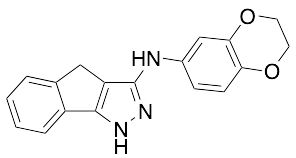
GN 44028
$111.26 Add to cart View Product DetailsMolecular Formula : C18N15N3O2
-

Go 6976
$92.29 Add to cart View Product DetailsMolecular Formula : C24H18N4O
-
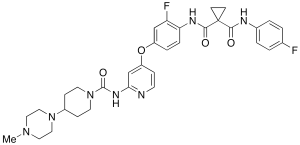
Golvatinib
$116.44 Add to cart View Product DetailsMolecular Formula : C33H37F2N7O4
-
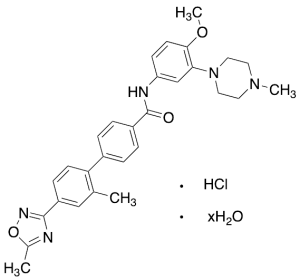
GR 127935 Hydrochloride Hydrate
$264.79 Add to cart View Product DetailsMolecular Formula : C29H31N5O3.HCl.x(H2O)
-
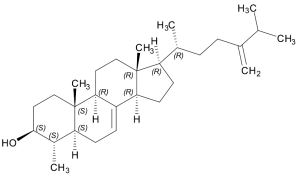
Gramisterol
$198.38 Add to cart View Product DetailsMolecular Formula : C29 H48 O
-

Granisetron-d3
$232.01 Add to cart View Product DetailsMolecular Formula : C18H21D3N4O
-
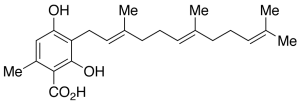
Grifolic Acid
$153.53 Add to cart View Product DetailsMolecular Formula : C23 H32 O4
-
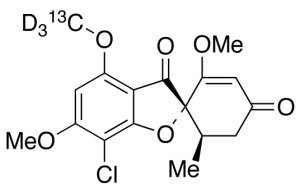
Griseofulvin-13C,d3
$165.60 Add to cart View Product DetailsMolecular Formula : C1613CH14D3ClO6
-

GRO alpha/CXCL1, Human
$1,073.81 Add to cart View Product DetailsChemokine (C-X-C motif) ligand 1 (CXCL1) is a small cytokine belonging to the CXC chemokine family that was previously called GRO1 oncogene, GRO-α, KC, neutrophil-activating protein 3 (NAP-3) and melanoma growth stimulating activity, alpha (MSGA-α). Human GRO-α, GRO-β (MIP2α),and GRO-γ (MIP2β)are products of three distinct, nonallelichuman genes. GRO-β and GRO-γ share 90% and 86% amino acid sequence homology with GROα, respectively. All three isoforms of GRO are CXC chemokines that can signal through the CXCR1 or CXCR2 receptors. GRO expression is inducible by serum or PDGF and/or by a variety of inflammatory mediators, such as IL-1 and TNF, in monocytes, fibroblasts, melanocytes and epithelial cells. In certain tumor cell lines, GRO is expressed constitutively. Similar to other alpha chemokines, the three GRO proteins are potent neutrophil attractants and activators. Additionally, these chemokines are also active toward basophils.All three GROs can bind with high affinity to the IL-8 receptor type B.
-

GRO beta/CXCL2, Human
$1,323.94 Add to cart View Product DetailsHuman GRO-α, GRO-β (MIP-2α), and GRO-γ (MIP-2β) are products of three distinct, nonallelichuman genes. GRO-β and GRO-γ share 90% and 86% amino acid sequence homology, respectively, with GROα. All three isoforms of GRO are CXC chemokines that can signal through the CXCR1 or CXCR2 receptors.GRO expression is inducible by serum or PDGF and/or by a variety of inflammatory mediators, such as IL-1 and TNF, in monocytes, fibroblasts, melanocytes and epithelial cells. In certain tumor cell lines, GRO is expressed constitutively.Similar to other alpha chemokines, the three GRO proteins are potent neutrophil attractants and activators. In addition, these chemokines are also active toward basophils.
-

GRO-α/KC/CXCL1, Mouse(CHO-expressed)
$1,073.81 Add to cart View Product DetailsGRO-α/KC/CXCL1 coded by CXCL1 gene at chromosome 5 is approximately 63% identity to that of mouse MIP2. KC is also approximately 60% identical to the human GROs. Mouse KC is a potent neutrophil attractant and activator. The functional receptor for KC has been identified as CXCR2. Based on the pattern of KC expression in a number of inflammatory disease models, KC appears to have an important role in inflammation. KC was found to be involved in monocyte arrest on atherosclerotic endothelium and may also play a pathophysiological role in Alzheimer’s disease.
-
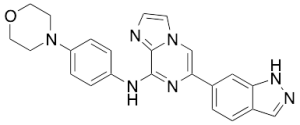
GS 9973
$69.00 Add to cart View Product DetailsMolecular Formula : C23H21N7O
-
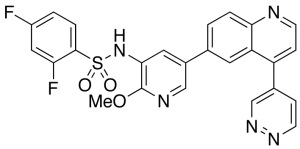
GSK 2126458
$76.76 Add to cart View Product DetailsMolecular Formula : C25H17F2N5O3S
-
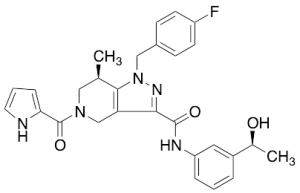
GSK 321
$132.83 Add to cart View Product DetailsMolecular Formula : C28H28FN5O3
